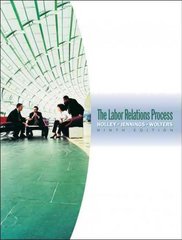2. Review the index of wage rates of 1980, 1990, 1998, 2002, and 2005 and determine whether...
Question:
2. Review the index of wage rates of 1980, 1990, 1998, 2002, and 2005 and determine whether the strategy and decision in 2008 would be the same as in the previous years. You are the owner of a small North Carolina factory that makes T-shirts for international distribution. You have observed that your sales have declined by about ten percent for each of the last three years. You believe that the reason is that you are being underpriced by your international competitors even though your market is in the United States and your competitors are required to pay transportation costs from their factories in other countries to the United States.
You have been reading several articles about exchange rates and the weakening of the dollar in comparison with many foreign currencies and believe you have come up with a unique solution to your problem. You have surveyed your 50 employees and found that most of them are single and love to travel.
Therefore, you have decided to purchase a ship and transfer your machinery and office equipment to the ship. Since you pay employees and sell your goods based on where you dock your ship, you have considerable flexibility on the country in which you conduct business. When the exchange rates change, you will simply move to another location where the exchange rates are more favorable.
As an example, in 2002, the 100 U.S. dollars were trading for about 90 euros; in early 2008, 100 U.S. dollars would trade for 68.1 euros. That means that U.S. manufacturers were much more competitive internationally in 2008 than in 2002, when the U.S. dollar was stronger internationally.
You have to decide where in the world you would like to dock your ship in order to take advantage of the exchange rates and wage rates of the country where you dock.
Step by Step Answer:

The Labor Relations Process
ISBN: 9780324421446
9th Edition
Authors: William H Holley, Kenneth M Jennings, Roger S Wolters






